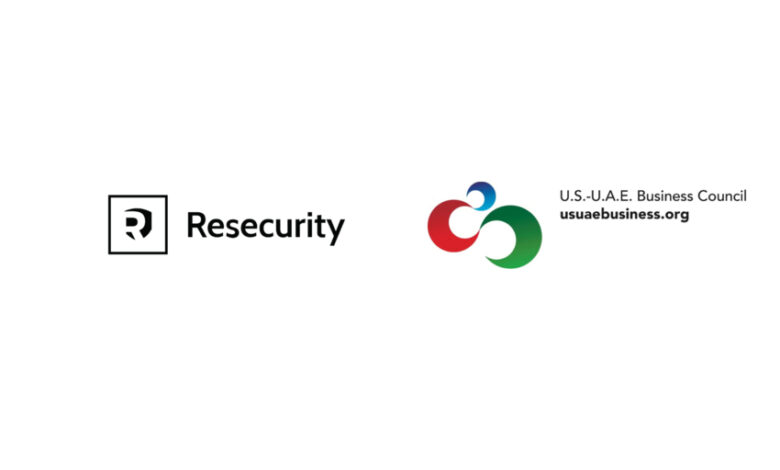30 Top Ways For Deciding On A Cybersecurity Company in Dubai
30 Top Ways For Deciding On A Cybersecurity Company in Dubai
Blog Article
Top 10 Tips On How To Assess The Certifications Of A Cyber-Security Service Provider In Dubai.
1. Verify the authenticity of certification AuthenticityBegin by verifying the authenticity of the certifications issued by the company. Check the validity of the certifications by consulting the authority that issued them as well as certification bodies. Among the key certifications you should consider include ISO 27001 PCI DSS and copyright. Valid certifications indicate adherence to established security standards.
2. Find out about Local Regulatory Compliance
Learn about the UAE Cybersecurity Strategy as well as the UAE Data Protection Law. Make sure that your company adheres to all legal frameworks. If they don't, it could have legal consequences and reputational harm.
3. Review Industry Specific Standards
Depending upon your industry and the nature of your business, you could discover that certain standards are more appropriate for your business. For instance, healthcare organizations may need to comply with HIPAA and financial institutions might be focused on PCI DSS. The evaluation of industry-specific certifications assures that the company has the expertise required to handle sector-specific risks.
4. Request Documentation
Request comprehensive documentation demonstrating conformity to applicable standards. This includes audit reports, security policies as well risk management frameworks. Documentation can provide insight into a company's commitment and ability to maintain compliance.
5. Contact us about Third Party Audits
Find out if there are regular inspections by a third party. Independent audits can provide an independent analysis of the compliance and security practices of a firm. Find audit reports from reputable companies that confirm the company's security procedures.
6. Evaluate Continuous Improvement Initiatives
Security continues to evolve and businesses need to demonstrate the commitment to continuous improvement. Examine whether the company is continuously reviewing its policies, processes and regulations to adapt to evolving threats and regulatory changes. This could mean the updating of their security framework as well as continuing training.
7. Learn more about Employee Training Programs.
The employees who are trained will help to ensure a robust cybersecurity posture. Inquire as to the organization's cybersecurity and compliance training programs. Training sessions regularly scheduled will keep employees aware of the most recent threats, compliance requirements, and best methods.
8. Review Incident Response Plans
Be aware of the company's policies for handling incidents. An effective incident response strategy should include how the organization manages data breaches and how it informs customers. The plan should outline remediation methods. Check that the company's procedures comply with compliance and best practice requirements.
9. Find testimonials from customers as well as references
Request references from existing clients to verify the company's compliance and certifications. Testimonials offer insight into the company's effectiveness and reliability in managing cybersecurity risks, which allows you to evaluate their standing in the field.
10. Research Industry Recognition
Examine the standing of the company in the community of cybersecurity professionals. Find awards, certificates of appreciation, or memberships in professional organizations that show their commitment to compliance and cybersecurity excellence. Reputation is often associated with trustworthiness and experience. Follow the top Cyber security services for site advice including cyber security projects, network and network security, data security, security technology, cyber security services company, cyber and security, cyber security projects, cybersecurity and technology, security it company, it security jobs and more.
Top 10 Tips To Assess The Capabilities Of Incident Response In The Cybersecurity Services Business
1. Know the Incident Response FrameworkBegin by examining the framework for incident response employed by the company. A framework that is clear for example, like the NIST Cybersecurity Framework (or the SANS Incident Response Process) is a sign that the company adheres to industry best practice to handle incidents. You should ensure that they have a well-structured procedure for dealing with incidents.
2. Evaluate Incident Response Team Expertise
Examine the experience and qualifications of the team members. Check for certifications like Certified Incident Handler (GCIH) or copyright Security Professional (copyright). Team members who are knowledgeable in the field of incident management and mitigation can effectively manage and reduce the risk of incidents.
3. Review of Incident Responses to Past Incidents Case Studies
Case studies or other examples of incidents that the company has handled are available on request. Examining the company's response to real-world scenarios will provide valuable insights into their efficiency and speed in tackling incidents. Find detailed descriptions of how they identified, contained, and resolved incidents.
4. Find out if an Incident Responder is available 24/7. Availability
If your company offers 24 hour emergency response You should inquire. Cybersecurity-related incidents can happen at any moment. If you have a 24/7 team, you can minimize the damage and recovery time.
5. Request Information About Incident-Detection Tools
Assess the technology, tools and procedures utilized by your company to monitor and detect incidents. The most effective detection tools, like Security Information and Event Management (SIEM) systems as well as intrusion detection systems (IDS), are essential for identifying dangers quickly and efficiently.
6. Examine Communication Protocols
Investigate the protocols for communication the company employs in the event of an emergency. Effective communication is crucial to coordinate responses, informing stakeholder and making sure everyone knows their roles during an event. It is important to understand how the company keeps clients informed about all aspects of the response.
7. Review Review Post-Incident Review Processes
Inform the company about their post-incident review processes. The thoroughness of reviewing following an incident helps discover the lessons gained and what improvements could be implemented. Find companies that make changes based on these reviews to improve their efforts to respond in the future.
8. Evaluate Recovery Strategies and Remediation Methodologies
Know the strategies your company employs to recuperate from an incident and rectify any issues. Effective recovery plans detail how systems and information are restored, while making sure to consider vulnerabilities in order to avoid repeat incidents. You should inquire about how they can rebuild and strengthen systems after an incident.
Examine the Compliance with Regulations
Check that the company's emergency response capabilities are in line with regulatory requirements. In certain industries, you may have specific requirements for incident reporting and response. An organization that is well-versed with the regulations can help to ensure compliance.
10. Look for references and testimonials
Find references from clients who have utilized the incident response services of your company. Testimonials can be a valuable source of information regarding the effectiveness, reliability, satisfaction and overall satisfaction in relation to incident response services. Check out the recommended penetration testing company in uae for blog tips including cyber & network security, cyber security job, network and security, security network security, information and security, learn computer security, security in data, data security, cyber security cybersecurity, cyber security services near me and more.
Top 10 Ways To Evaluate The Contracts And Pricing Structure Of A Cybersecurity Service Business
1. Learn Pricing ModelsBegin by educating yourself the different pricing models that the company employs. The most popular models are fixed-price contracts, hourly rates, and subscription based services. Knowing the model can help determine how your costs will rise over time, and the best option for you.
2. Request Quotes in Detail
Get detailed quotes that detail all the expenses involved in providing services. A transparent estimate will include the description of services, any associated fees and any extra charges. A clear pricing structure can avoid unexpected costs.
3. Compare Service Packages
If the business bundles services, inquire about it. Bundling of services can yield savings in costs when compared to buying the services individually. Take a look at the bundles available to see whether they can meet your requirements and provide financial advantages.
4. Ask about additional costs
Make sure you inquire about any potential additional costs that may not be apparent immediately. This can include charges for overtime, travel costs or expenses related to emergencies. Understanding total costs is critical in budget planning.
5. Take into consideration contract flexibility
Consider the flexibility offered in the contract. If you're able to modify the services offered to accommodate your changing needs, then they may be an ideal choice. Contracts with too much rigidity may result in excessive costs or hamper the ability to change services.
6. Examine the requirements for a long-term Commitment
Understanding the price structure that requires an extended commitment is crucial. Some companies may provide reduced rates for extended contracts however this may result in a long term commitment. Weigh the benefits against potential risk if your requirements alter.
Review Termination Clauses
Look at the contract's termination clauses. Know the terms under which you can terminate the agreement and any associated penalties. An acceptable cancellation policy provides you the opportunity to exit when services don't match your expectations.
8. Compare the Terms of Payment
ASK about the terms and condition of the payment. Ask about the terms of payment, and if there is a possibility of installment payments and whether discounts are offered for payments in advance. Clarity in the payment terms is crucial for managing cash flow.
9. Clarification of SLA Penalties
Review the Service Level Agreements, especially the penalties for failure to adhere to service standards. Understanding these penalties will give you an idea of the company's commitment towards service quality and accountability.
10. Compare with Competitors
Then, evaluate the price structure and contract terms with other cybersecurity service providers within the UAE or Dubai. This helps you assess the level of service, and also make sure you get the most value for your the money. Read the top iconnect for more info including information and security, security technology, network and security, cyber cyber security, managed security, cyber security tools, information security logo, cyber security, cyber security consulting, learn computer security and more.